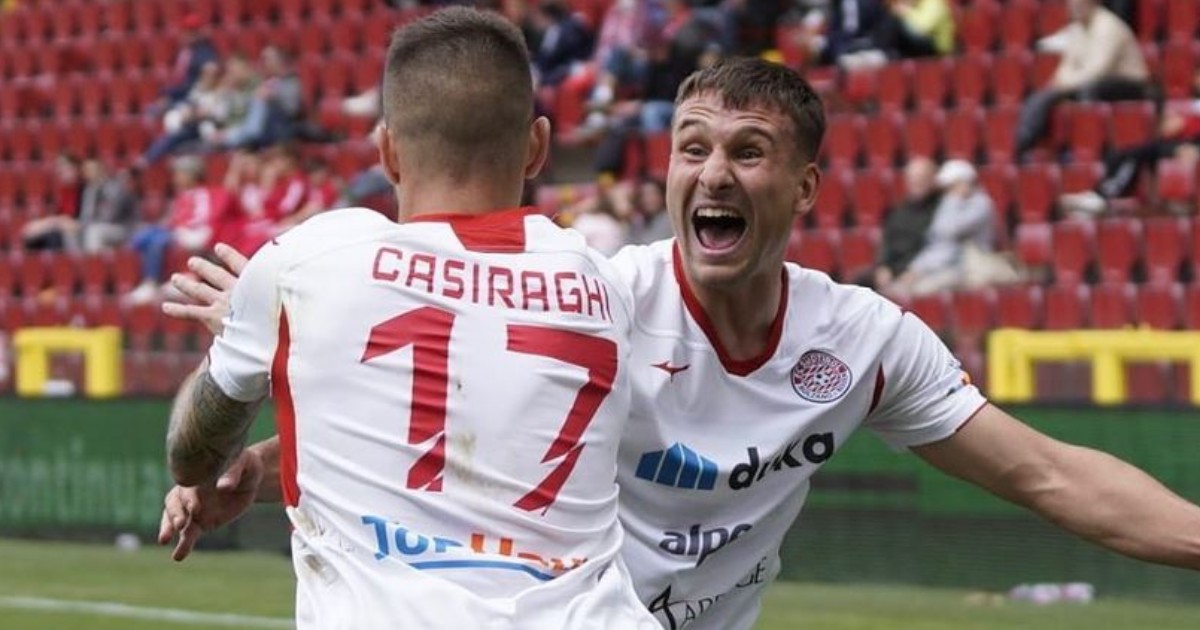Situated on the borders of Switzerland and Austria in Northeastern Italy lies Trentino-Alto Adige, a region that many consider to be a cultural anomaly.
It is home to medieval castles, charming towns, and the Dolomite Alps. The area is split into two provinces, the Italian-speaking Trento in the south, and the German-speaking Alto Adige (also called Südtirol, with Bolzano / Bozen as its capital) in the north. To make things more complicated, a small Ladin-speaking community also lives in the region.
This diversity has caused many of its inhabitants to not feel Italian, Austrian, or German. However, amidst an identity crisis, a football club has managed to unite all Trentini and Sudtirolesi around its success.
FC Südtirol will be Trentino-Alto Adige’s first club to play in Serie B after being crowned Serie C Group A Champions this season. The Bolzano-based outfit are Italy’s most Northern professional club and are the only German-speaking team in Italian professional football.
Südtirol’s historic promotion has been received from fans across Europe after ending the campaign with an impressive 27 victories and just 2 defeats. Coach Ivan Javorčić has been praised for his defensive style of play after his side conceded just 9 goals across 38 league matches.
The inhabitants of Alto Adige would have never expected to be partaking in Serie B in the 2022/23 season when just under 30 years ago, they did not even have a professional team.
Südtirol was founded in 1995 after taking over an amateur team in Bressanone / Brixen. Before their formation, Trentino-Alto Adige did not have a professional football club since the 1980s with FC Bolzano. Südtirol’s colors are white and red, which originate from the coats of arms and flags of Alto Adige and the city of Bolzano.
The Biancorossi play their home games in the Stadio Druso, named after Roman general Nero Drusus. The stadium can hold up to 5,500 spectators and unites Südtirol’s Italian, German, and Ladin speaking supporters in goal, cheering for their town’s team.
Südtirol’s success can be seen off the pitch through its management. The club is structured in a joint venture co-owned by partners and private companies, similar to the ownership of Bayern Munich. The management that has implemented a salary cap of €100,000 per player and developed state of the art training facilities.
The Tirolesi train at the FCS Center in Eppan, a town eight kilometers southwest of Bolzano. Südtirol’s youth teams play their championship games at the complex, and the center was used as a training camp for the German national team during their preparation for the 2010 and 2018 World Cup.
Another one of Südtirol’s strengths has been its commitment to local players. They have a strong focus on youth development and have successful integrated four youth players to the first team. Simone Davì, Manuel Fischnaller, Fabian Tait, and club captain Hannes Fink all graduated from the Südtirol youth academy and played an important role in the club’s success this year.
With many clubs fluctuating between Italy’s second and third division every season, Südtirol seems prepared both on and off the pitch to become a consistent Serie B side in the coming years.
For Italy’s Northernmost club, football has become more than just a sport; it has become a symbol of Trentino-Alto Adige pride and a means of showing the rest of the country what this region can accomplish.

